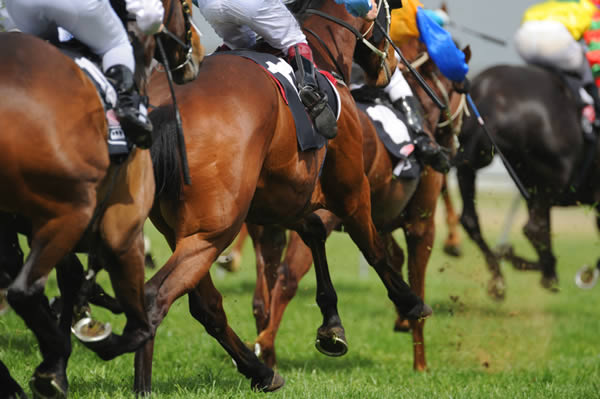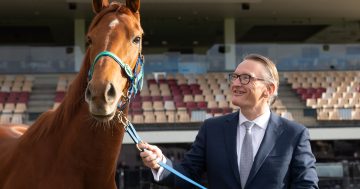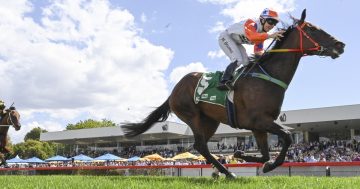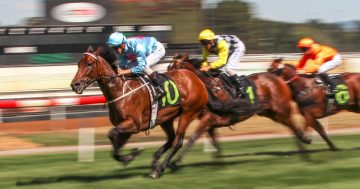
The sale of Canberra’s betting agency ACTTAB for $105.5 million and a 50-year exclusive totalisator licence to Tabcorp Holdings (for $1 million a year) has been met with disbelief and anger in some quarters of the racing industry.
Representatives of the thoroughbred, harness and racing codes feel they were excluded from consultations over the sale and have no assurances that the annual $8 million plus racing industry funding model will continue beyond the next ACT elections in 2016-17.
One key industry source said ACTTAB turnover had fallen and racing could not survive on declining turnover. “We have made clear that over time it would not be a good outcome,” the source said. “There is no certainty for the racing industry. The funding model doesn’t make sense. It’s a very short-term fix.”
In 2013 ACTTAB’s revenue fell to $29.405 million (from 30.494 million in 2012) and there were $1.529 in total payments to the ACT Government. But earnings have been in slow decline for many years, blamed by industry on poor marketing and out-of-date computer capability.
An Investigation into the ACT Racing Industry by Access Economics (November 2010) found that the thoroughbred racing industry generated $52.0 million in expenditure, which resulted in direct plus indirect economic impacts of: $44.4 million in value added to the ACT; and employment of 480 full time equivalent workers.
Plans to invest the ACTTAB windfall
Treasurer Andrew Barr said the sale would allow his Government to boost the budget and invest in new assets and infrastructure for the territory.
However, the sale comes after the ACT Government announced it is struggling with a record budget deficit of $332.8 million for 2014-15 and has plans to borrow $2.5 billion for ‘infrastructure investment’ over the next four years.
The Government said Tabcorp plans to give $3 million to the racing industry in Canberra and $4 million in sponsorship for sport. But so far no arrangements are in place with the racing industry.
State TAB sales ‘a disaster’ for racing
The sale of ACTTAB reflects a national sell-off of state assets, including TABs. Industry sources say sales of TABs in Tasmania, South Australia and Queensland have proved disastrous to their local racing industries.
The WA Government said it is looking at selling the TAB as one of several state assets to reduce the state’s debt. The state’s horse racing industry held an emergency meeting in May to address concerns the TAB would be sold. WA Racing Trainers Association President Michael Grant said trainers were concerned over the potential loss of profits from the TAB, which – like Canberra – supported thoroughbred, harness and greyhound racing.
“One of our main concerns is obviously having seen the devastating effects associated with the sales of TABs in other states – so our concerns are well founded,” he said. “I can’t see a longer-term upside from the sale of the TAB.”
ACTTAB role in racing
Industry sources say they have problems dealing with ACT Government bureaucrats and that no member of the ACTTAB Board has relevant experience running a TAB, and only one of the directors is involved in thoroughbred racing.
Chairman Con Kourpanidis is a lawyer and businessman; Ted Quinlan AM is a former Labor Member of the ACT Legislative Assembly and a former Deputy Chief Minister, Treasurer, and Minister for Gambling and Racing; Howard Powell AM, with more than 44 years in business with a variety of national companies, is an owner and breeder and an elected member of the Canberra Racing Club; Dr Robyn Hardy is a part time lecturer who was formerly employed in senior roles with various ACT Government agencies.
ACTTAB featured in the high-profile Vitab affair in the early 1990s when the then Labor government faced the loss of $7 million to $10 million. The ACT was forced to pay compensation to a group of investors, including former Labor Prime Minister Bob Hawke. See ACT Auditor General’s report (page 75).
In 2002, a then director on ACTTAB’s Board, Sue Baker Finch, was asked to manage the appointment of a new CEO to replace outgoing CEO Roger Smeed. But instead Ms Baker-Finch was herself appointed as ACTTAB’s CEO (which then paid around $220,000). The Stanhope Labor government said no suitable candidate had been found after the first round of interviews.
The appointment aroused concerns about equity and fairness.





















